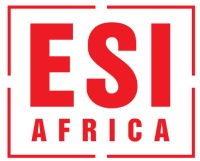Dark reality: 1.6 Million households lack electricity in South Africa
In South Africa, 1.6 million households are unelectrified, primarily in informal settlements, peri-urban areas, deep rural areas and newly constructed housing projects.
This was stated by the Minister of Electricity and Energy, Dr Kgosientso Ramokgopa, during his budget vote address last week.
Ramokgopa said the stark numbers demand a renewed and accelerated national effort to achieve universal energy access.
He said more than 8.4 million new household connections have been delivered, expanding electricity access from just over 36% in 1994 to more than 94% by 2024.
“This achievement reflects the state’s commitment to universalising access as a core component of post-apartheid reconstruction and development. However, the momentum of recent years has slowed.”
Ramokgopa said his Department has undertaken a review of the country’s current electrification approach and initiated a comprehensive Universal Access Strategy.
“This intervention aims to expand beyond its historic grid-centric model and adopt a coordinated, technology-neutral framework that accelerates access delivery, integrates grid and non-grid solutions, and institutionalises implementation partnerships across all three spheres of government.”
Reframing electricity as a developmental and rights-based obligation in South Africa
The Electricity Minister said the revised strategy is structured around three critical reforms:
- Reconfiguration of the delivery model to consolidate all access programmes under one hybrid planning and funding framework, including the review of the current Integrated National Electrification Programme (INEP) grant; towards a universal access grant.
- Infrastructure modernisation, with targeted investment in overloaded or under-capacitated networks to accommodate new connections and load growth.
- Innovation and off-grid integration, scaling microgrids and decentralised energy and smart grid systems for deep rural, peri-urban and informal areas.
Have you read? Addressing the need for township electrification
Ramokgopa said the Universal Access Strategy reframes electricity as a developmental and rights-based obligation, rather than a backlog of legacy infrastructure.
“By aligning spatial planning, funding reform, and capacity building into a single programme, the department aims not only to close the access gap by 2030 but also to embed energy access into a broader framework of inclusive growth, social equity, and infrastructure-led transformation.
“Over the Medium-Term Expenditure Framework, the government has committed just over R13 billion to the Integrated National Electrification Programme. This allocation is more than a funding line. It is a baseline commitment to end energy poverty and a platform to reconfigure how we deliver on the promise of universal access by 2030,” he said.
Cover photo: Gugulethu Ndlalani©Pexels


